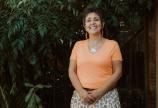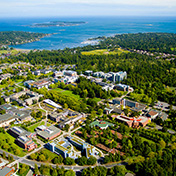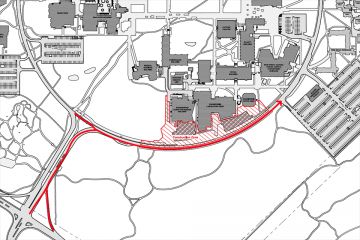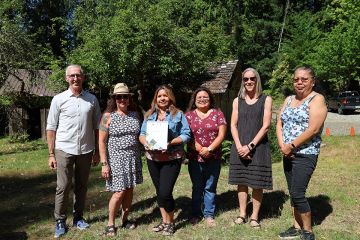Launch of Indigenous nursing master’s a historic occasion
- Stephanie Harrington
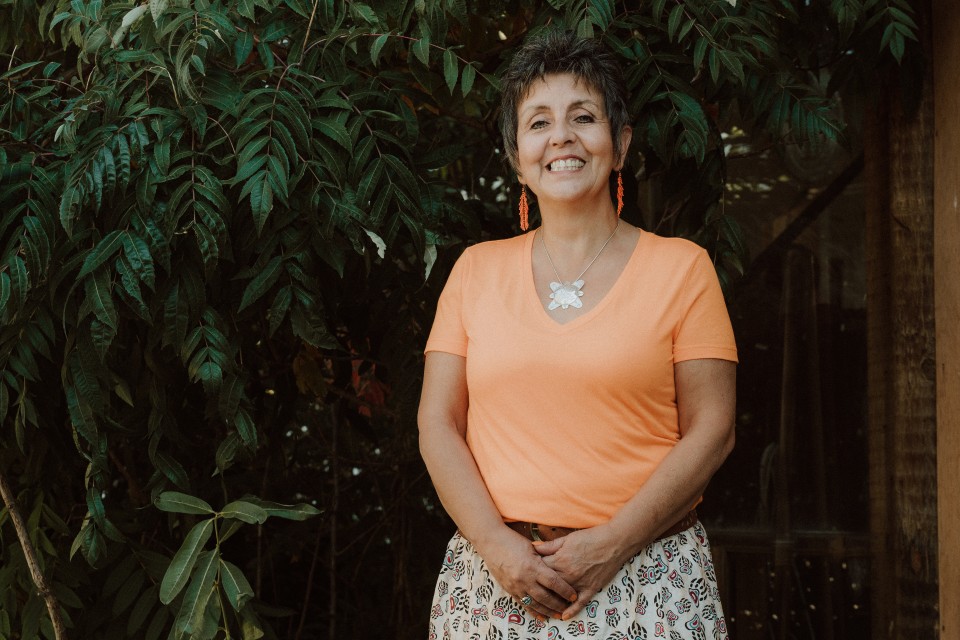
Lisa Bourque Bearskin has spent her 40-year career trying to make space in nursing.
Space for Indigenous knowledge and approaches outside of Western medicine; space for health care driven by the distinct needs of First Nations, Inuit and Metis communities; and space for Indigenous nurses and patients to feel cared for, supported and safe.
Bourque Bearskin, an associate professor in nursing at the University of Victoria and a Canadian Institutes of Health Research (CIHR) Indigenous Health Research Chair in Nursing, is poised to usher in the changes that Indigenous nurses have been dreaming about.
This week, fifty delegates from six universities across BC gathered in Penticton, on the traditional and Unceded territory of the Syilx Okanagan People, to launch a master’s of Indigenous nursing research project, with another 30 Indigenous leaders, Elders, Knowledge Keepers, nurses and nurse educators signed up to take part online.
In three years’ time, Bourque Bearskin envisions that 24 to 30 nursing students will be enrolled in a first-of-its-kind master’s degree that combines high-level professional training with community-driven interventions designed to meet the unique needs of Indigenous Peoples living in rural and remote areas.
Bourque Bearskin, a member of Beaver Lake Cree Nation in Treaty Six Territory, says she joined UVic in September from Thompson Rivers University (TRU) to further advance an Indigenous health nursing research program.
A collaborative solution
Co-leading the project with Bourque Bearskin is Donna Kurtz, an associate professor with University of British Columbia-Okanagan. TRU, UBC-Vancouver, the University of Northern British Columbia and Trinity Western University round out the six partner institutions that jointly received $683,000 from CIHR over four years to develop and launch the project, called "Reclaiming and Recovering Indigenous Knowledge in Graduate Nursing Education.”
Supporting the wellbeing of Indigenous nurses, and non-Indigenous nurses who work with Indigenous Peoples, rests at the centre of the ambitious plan to improve the retention of Indigenous nurses, train tomorrow’s leaders in nursing and build a health-care model that is equitable, fair and just.
“Ultimately, my hope is to improve health care access to First Nations, Inuit and Metis communities living in rural and remote areas. It’s about training Indigenous nurses with the lived experience so we can start integrating our own traditional approaches to health and healing.”
—Lisa Bourque Bearskin
The project evolved from Bourque Bearskin’s work as a CIHR chair at TRU, and the visioning exercises she conducted with nurses and Indigenous communities as she imagined how nursing could support the distinct nature of Indigenous communities.
The need is urgent
Bourque Bearskin points to the critical shortage of nurses in health care, as well as recommendations and calls from myriad reports, including the Truth and Reconciliation Commission’s Calls to Action and In Plain Sight, the BC report which addresses widespread racism and discrimination experienced by Indigenous Peoples in health care settings.
One In Plain Sight survey found 60 per cent of Indigenous nurses reported that their colleagues say discriminatory or hurtful comments in front of them, and more than 90 per cent reported that racial prejudice moderately to significantly affected their mental and emotional health. Overall, Indigenous Peoples having less access to health care and poorer health outcomes.
Bourque Bearskin, who worked as a nurse for 25 years in rural areas of Alberta and in Iqaluit, Nunavut, and whose two daughters are nurses, says the situation is dire. Many remote and rural communities find it increasingly difficult to retain nurses.
“In my 40 years, I’ve never seen it like this before. We are in crisis right now,” she says.
Leanne Kelly, a PhD student in UVic’s Social Dimensions of Health program and assistant teaching professor in UVic’s School of Nursing, is among researchers gathering in Penticton.
A Metis/Cree nurse, originally from the Qu’appelle Valley in Saskatchewan, Kelly has worked in First Nations health for the majority of her nursing career. She calls the master’s project exciting and timely.
"So many of us have been working in Indigenous communities and within our own Indigenous skin all our lives, with very little attention paid to the ways in which we inherently and practically advance our profession and support Indigenous communities.”
—Leanne Kelly
Barb Hulme, a Metis Elder in Residence at UVic’s First Peoples House and a retired nurse of 55 years who is participating in the launch, says a master’s of this kind is “extremely necessary”.
“When we talk about community, it doesn’t have the same meaning to all people,” she says. “We could talk about our street community or on-reserve community or urban Indigenous communities, all of which have very specific needs and differences in how the world views them and how they view themselves.”
—Barb Hulme
A community-led solution
Bourque Bearskin says the project’s timing is right, particularly given the federal government’s commitment to developing distinctions-based Indigenous health legislation with Indigenous communities. The goal of the Penticton gathering, she says, is to come together as a team, hear the voices of community members, and draft a strategy based on what communities need and how universities can better support nurses’ education.
One of Bourque Bearskin’s biggest strengths is bringing people together, and she acknowledges that the project’s scope and complexity will bring challenges.
“It’s really going to require people to think differently and to take a collective approach without losing the local identity of the nations where our nursing institutions are situated,” she says.
Bourque Bearskin draws inspiration from the Cree phrase mâmawoh kamâtowin, which means “coming together to help each other.”
“At the end of the day, it’s all about the people,” she says.Photos
In this story
Keywords: community, indigenous, nursing, health, graduate research, reconciliation, faculty
People: Lisa Bourque Bearskin, Leanne Kelly, Barb Hulme

